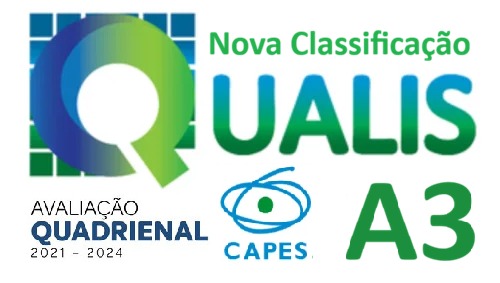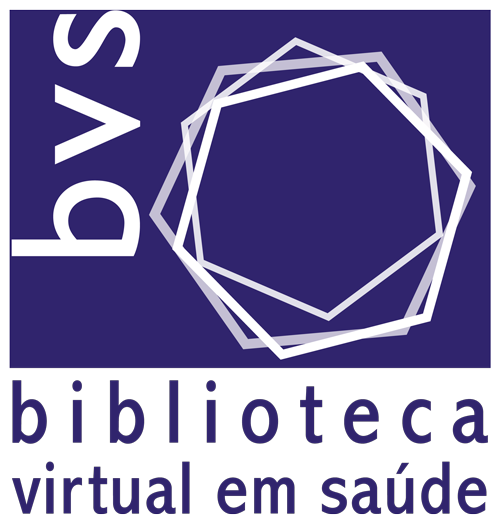Metodologia de Sistemas Flexíveis como uma abordagem para a gestão de segurança de instalações nucleares: um estudo de caso
DOI:
https://doi.org/10.15392/2319-0612.2024.2523Palabras clave:
Problemas Sociotécnicos de Segurança, Pensamento Sistêmico, Problemas Complexos, Gestão de Segurança NuclearResumen
Este manuscrito apresenta um relato da aplicação da Metodologia de Sistemas Suaves (MSF) pelo Grupo de Análise de Segurança de Sistemas Sociotécnicos (GASSST) em um problema complexo de segurança no Instituto de Pesquisas Energéticas e Nucleares de São Paulo, Brasil (IPEN-CNEN/SP). Baseando-se tanto em fundamentos teóricos, com base na documentação produzida por Peter Checkland e outros pesquisadores, quanto em experiências práticas, o estudo explora a abordagem da MSF para enfrentar desafios que envolvem fatores técnicos e humanos. Os principais resultados incluem a identificação das perspectivas dos principais interessados, o desenvolvimento de uma Figura Rica para capturar a complexidade do problema e a discussão de soluções potenciais. No entanto, a aplicação completa da SSM foi prejudicada devido às intervenções proativas da equipe da instalação, que resolveu o problema inicial antes que todas as etapas da SSM pudessem ser concluídas. O processo foi posteriormente interrompido por uma pausa induzida pela pandemia do SARS-CoV-2, durante a qual a equipe da instalação esteve ausente por 1 ano e 10 meses. O estudo conclui que a aplicação oportuna da SSM e a expertise dos facilitadores são críticas para a navegação eficaz de questões complexas de segurança. Destaca ainda a necessidade de profissionais experientes e uma aplicação mais rápida da SSM para aproveitar plenamente seu potencial na resolução de desafios organizacionais. As reflexões e experiências documentadas pelo GASSST contribuem com insights valiosos para aplicação prática da MSF em contextos semelhantes.
Descargas
Referencias
CHECKLAND, P.B. The systems movement and the ‘Failure’ of ‘Management Science. Cybernetics and Systems, V. 11, n. 4, p. 317–324, 1980. DOI: https://doi.org/10.1080/01969728008960242
CHECKLAND, P.B. Systems thinking, systems practice. 1st Edition, John Wiley & Sons Ltd., Chichester, 1981. ISBN 978-0471986065.
CHECKLAND, P.B. From optimizing to learning: A development of systems thinking for the 1990s. Journal of the Operational Research Society, V. 36, n. 9, p. 757–767, 1985. DOI: https://doi.org/10.1057/jors.1985.141
CHECKLAND, P.B. Soft systems methodology: A thirty year retrospective. Systems Research and Behavioral Science, v. 17, n. S1, p. S11–S58, 2000. DOI: https://doi.org/10.1002/1099-1743(200011)17:1+<::AID-SRES374>3.0.CO;2-O
CHECKLAND, P.B. New maps of knowledge some animadversions (friendly) on: science (reductionist), social science (hermeneutic), research (unmanageable) and universities (unmanaged). Systems Research and Behavioral Science, v. 17, n. S1, p. S59–S75, 2000. DOI: https://doi.org/10.1002/1099-1743(200011)17:1+<::AID-SRES377>3.3.CO;2-6
CHECKLAND, P.B. Autobiographical retrospectives: Learning your way to ‘action to improve’ – The development of soft systems thinking and soft systems methodology. International Journal of General Systems, v. 40, n. 5, p. 487–512, 2011. DOI: https://doi.org/10.1080/03081079.2011.571437
CHECKLAND, P.B. Reflections on 40 years in the management field: A Parthian shot (friendly). Journal of the Operational Research Society, v. 70, n. 8, p. 1219–1223, 2019. DOI: https://doi.org/10.1080/01605682.2019.1590137
CHECKLAND, P.B.; HOLWELL, S.E. Information, systems and information systems - making sense of the field. 1st Edition, John Wiley & Sons Ltd., Chichester, 1997. ISBN 978-0471958208.
CHECKLAND, P.B.; HOLWELL, S.E. Action research: Its nature and validity. Systemic Practice and Action Research, v. 11, n. 1, p. 9–21, 1998. DOI: https://doi.org/10.1023/A:1022908820784
CHECKLAND, P.B.; POULTER J. Learning for action: A short definitive account of soft systems methodology and its use for practitioners, teachers, and students. 1st Edition, John Wiley & Sons Ltd., Chichester, 2006. ISBN 978-0470025543.
BRENTON, K. Using Soft Systems Methodology to examine communication difficulties. Mental Health Practice (through 2013), v. 10, n. 5, p. 12-17, 2007. DOI: https://doi.org/10.7748/mhp.10.5.12.s18
KAYAGA, S. Soft Systems Methodology for performance measurement in the Uganda water sector. Water Policy, v. 10, n. 3, p. 273-284, 2008. DOI: https://doi.org/10.2166/wp.2008.153
CHECKLAND, P.B. The emergent properties of SSM in use: a symposium by reflective practitioners. Systemic Practice and Action Research, v. 13, n. 6, p. 799-823, 2000. DOI: https://doi.org/10.1023/A:1026431613200
GREGORY, W.J.; MIDGLEY G. Planning for disaster: developing a multi-agency counselling service. The Journal of the Operational Research Society, v. 51, n. 3, p. 278-290, 2000. DOI: https://doi.org/10.1057/palgrave.jors.2600912
BEZUIDENHOUT, C.N., BODHANYA, S.; BRENCHLEY, L. An analysis of collaboration in a sugarcane production and processing supply chain. British Food Journal, v. 114, n. 6-7, p. 880-895, 2012. DOI: https://doi.org/10.1108/00070701211234390
BODHANYA, S. The application of a Concept Model to Illustrate the Tragedy of the Commons in the Sugar Cane Supply Chain. Alternation, v. 18, n. 1, p. 70-87, 2011.
LE GAL, P.Y., LYNE, P.W.L., MEYER, E.; SOLER, L.G. Impact of sugarcane supply scheduling on mill sugar production: a South African case study. Agricultural Systems, v. 96, n. 1-3, p. 64-74, 2008. DOI: https://doi.org/10.1016/j.agsy.2007.05.006
TAJINO, A., JAMES, R.; KIJIMA, K. Beyond needs analysis: soft systems methodology for meaningful collaboration in EAP course design. Journal of English for Academic Purposes, v. 4, p. 27–42, 2005. DOI: https://doi.org/10.1016/j.jeap.2004.01.001
MILLS-PACKO, P.A., WILSON, K.; ROTAR, P. Highlights From the Use of the Soft Systems Methodology to Improve Agrotechnology Transfer in Kona, Hawaii. Agricultural Systems, v. 36, n. 4, p. 409-425, 1991. DOI: https://doi.org/10.1016/0308-521X(91)90069-M
NIDUMOLU, U.B., DE BIE, C., VAN KEULEN, H, SKIDMORE, A.K.; HARMSEN, K. Review of a land use planning programme through the soft systems methodology, Land Use Policy, v. 23, n. 2, p. 187–203, 2006. DOI: https://doi.org/10.1016/j.landusepol.2004.08.003
POR, J. The use of soft system methodology (SSM) in a service-focused study on the personal tutor’s role, Nurse Education in Practice, v. 8, N. 5, p. 335–342, 2008. DOI: https://doi.org/10.1016/j.nepr.2007.12.002
KASSABOVA, D.; TROUNON, R. Applying soft system methodology for user-centered design. In : Proceedings of the 13th Annual Conference of the national Advisory Committee on Computing Qualifications NACCQ, Wellington, New Zealand. Annals of the 13th Annual Conference of the national Advisory Committee on Computing Qualifications NACCQ, 2000.
WILLIAMS, B. Soft Systems Methodology. Available at: https://www.bobwilliams.co.nz/ewExternalFiles/ssm.pdf. Accessed on : 19 jun. 2024.
BURGE, S. An Overview of the Soft Systems Methodology. System Thinking: Approaches and Methodologies, p. 1-14, 2015.
SIMONSEN, J. Soft Systems Methodology: An Introduction. Roskilde Universitet. Available at: http://jespersimonsen.dk/Downloads/SSM-IntroductionJS.pdf. Accessed on : 19 jun. 2024.
NETO, A.S.V.; GUILHEN, S.N.; RUBIN, G.A.; FILHO, J.S.C.; CAMARGO, I.M.C. Soft Systems Methodology as a Systemic Approach to Nuclear Safety Management. In : Proceedings of the 8th International Nuclear Atlantic Conference INAC, Belo Horizonte, Brazil, 2017.
REAICHE, C.; PAPAVASILIOU, S. Management Methods for Complex Projects, James Cook University, 2022, p. 108-127. ISBN 978-0645419870. DOI: https://doi.org/10.25120/p4yc-gksq
JACKSON, M.C. Systems Methodology for the Management Sciences. 1st Edition, Springer New York, NY, 1991. ISBN 978-3540713593.
JACKSON, M.C.; FLOOD, R.L. Creative problem solving: total systems intervention. 1st Edition, John Wiley & Sons Ltd., Chichester, 1991. ISBN 978-0471930525.
JACKSON, M.C. Systems approach to management. 1st Edition, Springer New York, NY, 2000. ISBN 978-0387240626.
JACKSON, M. Systems Thinking: Creative holism for managers. 1st Edition, John Wiley & Sons Ltd., Chichester, 2003. ISBN 978-0470845226.
JACKSON, M. Critical systems thinking and the management of complexity. 1st Edition, John Wiley & Sons Ltd., Chichester, 2019. ISBN 978-1119118374.
MINGERS, J. Journal of Applied Systems Analysis, v. 7, p. 41–50, 1980.
MINGERS, J. Subjectivism and soft systems methodology - A critique. Journal of Applied Systems Analysis, v. 11, p. 85–104, 1984.
MINGERS, J. ; TAYLOR, S. The use of soft systems methodology in practice. Journal of the Operational Research Society, v. 43, n. 4, p. 321–332, 1992. DOI: https://doi.org/10.1057/jors.1992.47
MINGERS, J. An idea ahead of its time: The history and development of soft systems methodology. Systemic Practice and Action Research, v. 13, n. 6, p. 733–755, 2000. DOI: https://doi.org/10.1023/A:1026475428221
MINGERS, J. Systems thinking, critical realism and philosophy: A confluence of ideas. 1st Edition, Routledge, London, 2014. ISBN 978-1138195714. DOI: https://doi.org/10.4324/9781315774503
MIDGLEY, G. What is this Thing called Critical Systems Thinking? In : MIDGLEY, G. Critical Issues in Systems Theory and Practice. Germany : Springer Science & Business Media, 1996. p. 61-71. ISBN 978-1119118374. DOI: https://doi.org/10.1007/978-1-4757-9883-8_7
MIDGLEY, G. Science as Systemic Intervention: Some Implication of Systems Thinking and Complexity for the Philosophy of science. Systemic Practice and Action Research, v. 16, p. 77-97, 2003. DOI: https://doi.org/10.1023/A:1022833409353
MIDGLEY, G. Systems thinking. General systems theory, cybernetics and complexity. 1st Edition, SAGE Publications Ltd, London, v. 1, 2003. DOI: https://doi.org/10.4135/9781446263556
MIDGLEY, G. Systems Thinking for Evaluation. Systems Concepts in Evaluation – An Expert Anthology, p. 11–34, 2007.
MIDGLEY, G. Systems thinking, complexity and the philosophy of science. E:CO Emergence: Complexity and Organization, v. 10, p. 55–73, 2011.
WILSON, B. Systems: Concepts, Methodologies, and Applications. 2nd Edition, John Wiley & Sons Ltd., Chichester, 1990. ISBN 978-0471927167.
ISON, R. Systems Thinking and Practice for Action Research. In: REASON, P.W.; BRADBURY, H. The Sage Handbook of Action Research Participative Inquiry and Practice. London : SAGE Publications Ltd, 2008. p. 139–158. ISBN 978-1412920292. DOI: https://doi.org/10.4135/9781848607934.n15
PROCHES, C.N.G.; BODHANYA, S. An application of soft systems methodology in the sugar industry. International Journal of Qualitative Methods, v. 14, n. 1, p. 1–15, 2015. DOI: https://doi.org/10.1177/160940691501400101
JACKSON, M.C. The Nature of 'Soft' Systems Thinking: The Work of Churchman, Ackoff and Checkland. Journal of Applied Systems Analysis, v. 9, p. 17–39, 1982.
MINGERS, J. Subjectivism and Soft Systems Methodology - A Critique. Journal of Applied Systems Analysis, v. 11, p. 85–104, 1984.
ARMSTRONG, R.; JIMÉNEZ, G. Micro-Skills for Learning Soft Systems Methodology? Challenges and Opportunities in an Undergraduate Dissertation Project. Systemic Practice and Action Research, v. 35, p. 831–853, 2022. DOI: https://doi.org/10.1007/s11213-022-09595-y
Descargas
Publicado
Número
Sección
Licencia
Derechos de autor 2024 Brazilian Journal of Radiation Sciences (BJRS)

Esta obra está bajo una licencia internacional Creative Commons Atribución 4.0.
Licencia: los artículos de BJRS tienen una licencia internacional Creative Commons Attribution 4.0, que permite el uso, el intercambio, la adaptación, la distribución y la reproducción en cualquier medio o formato, siempre que se otorgue el crédito correspondiente al autor o autores originales y a la fuente, proporcione un enlace a la licencia Creative Commons e indique si se realizaron cambios. Las imágenes u otros materiales de terceros en el artículo están incluidos en la licencia Creative Commons del artículo, a menos que se indique lo contrario en una línea de crédito al material. Si el material no está incluido en la licencia Creative Commons del artículo y su uso previsto no está permitido por la regulación legal o excede el uso permitido, el autor deberá obtener el permiso directamente del titular de los derechos de autor. Para ver una copia de esta licencia, visite http://creativecommons.org/licenses/by/4.0/



























